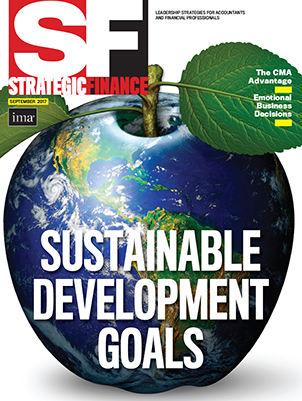Eric Piscini’s Deloitte Tech Trends 2017 article “Blockchain: Trust economy” (www.dupress.deloitte.com) is about the suitability of blockchain’s open distributed ledger in the emerging “trust economy,” but there are also interesting “My take” sections in the report that offer more general observations about the technology. We’ll start with those observations and then look at how blockchain fits neatly into general trust and P2P (person-to-person) environments.
AN INTERNET-SIZE PROMISE
Joichi Ito, the director of the MIT Media Lab, was asked for his take on blockchain, and he wrote, “When I look at the current state of blockchain, I’m reminded of the early days of the Internet—filled with promises of disruption, a brand new stack that needed to be built, unchecked investment, and more than a few crazy dreamers.” Ito includes himself among those dreamers, and he compares the early internet naysayers with those now doubting blockchain, cryptocurrencies, and smart contracts online.
Ito adds, “The currency piece of the blockchain is a lot like email was to the Internet (the most-used killer app).” Other major apps, he says, will follow, once blockchain is deployed everywhere, and that includes a layer for smart contracts.
But Ito’s not sure American institutions will give blockchain the same chance given to the early internet. There could be stumbling blocks in the form of older laws regarding problems like money-laundering. Piscini claims, “You could twist yourself into knots trying to design your business and products around old statutes.” In order to adjust the interplay between the blockchain technology and public policy, he says, “Anything we can do to amplify, accelerate, and advance our collective progress in a prudent but progressive way can transform the world around us to the benefit of society.”
DISCOVERING BLOCKCHAIN
Matthew Roszak, cofounder of Bloq, a company that delivers “enterprise-grade blockchain,” offers his take in the Deloitte report, and adds some advice for those on the sidelines. He remembers when in 2012 he was persuaded by others to investigate the technology behind blockchain. “I did what I still tell people to do today: lock your door, turn off your phone, and study this new technology frontier for a day.” He knew then that the ecosystem was likely to cause profound changes in enterprises, governments, and society. To miss out could mean the loss of “a generational opportunity for entrepreneurs and investors.”
THE TRUST ECONOMY'S GATEKEEPER
The primary focus of the Deloitte article is on an emerging economy that depends on trustworthiness. Consider the transactions of ride-sharing apps that rely on customers ranking drivers’ performance, Airbnb lodger recommendations, and services like Angie’s List. There are new gauges of trustworthiness that are now replacing the traditional trust protocols.
Piscini explains, “In a break from the past, the trust economy does not turn on credit ratings, guaranteed cashier’s checks, or other traditional trust mechanisms.” Instead, it relies on each participant’s reputation and their digital identity, elements which he expects may soon be stored and managed in blockchains. Piscini predicts in the next 18 months to two years, companies and groups worldwide will begin to find it practical to consider blockchain as a gatekeeper for their own and others’ digital reputation.
We aren’t there yet, but Piscini also points out another important benefit of blockchain as gatekeeper. If you use it to certify and clear asset exchanges, those transactions take place virtually instantaneously. “What once took T + 3 days to clear now takes T + 3 milliseconds.”
WHERE DO YOU START?
Piscini ends with how to begin. He offers five steps:
- Blockchain will be disruptive far beyond financial services. Think globally regarding sectors, and you should probably start small.
- Learn the basic mechanics of blockchain to discover what does or doesn’t fit in your case.
- Ask your developers or providers what specific applications are or aren’t fit for your blockchain.
- Without partners, a blockchain offers few or no advantages. Explore ways to extend your current business network(s).
- Focus on “actionable, bounded scenarios with realistic scope.”
But first, take a day, lock the door, and learn the technology.

September 2017



